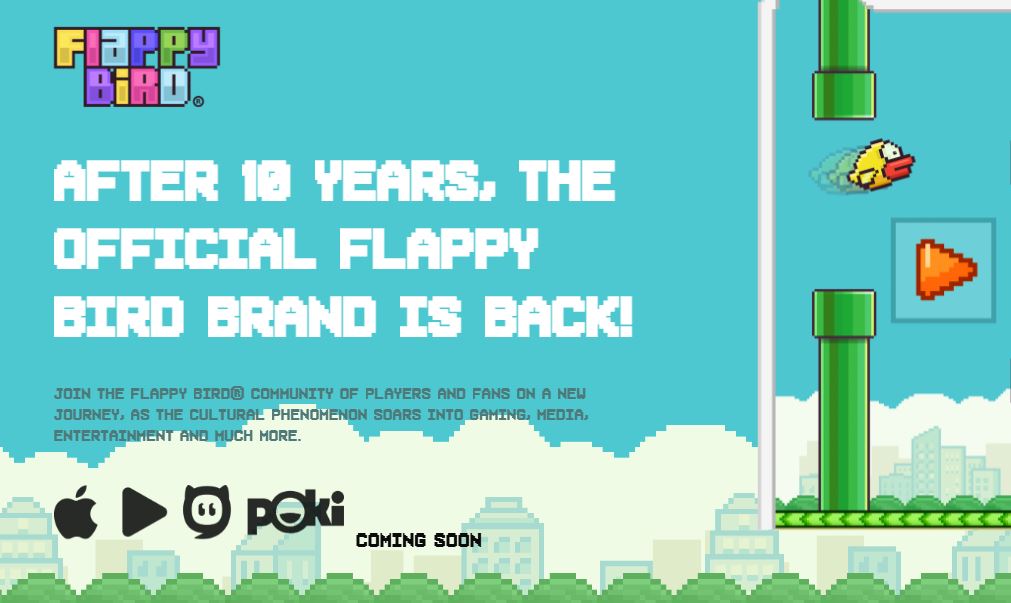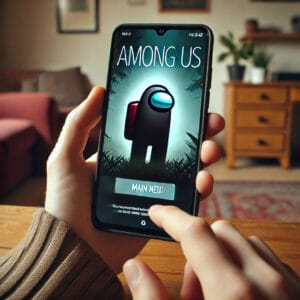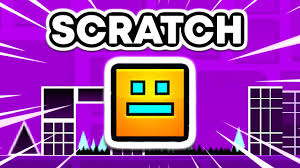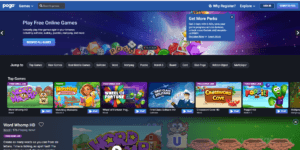
Why Did Flappy Bird Get Banned?
Millions of individuals spent the first few months of 2014 hooked to their phones, attempting to make their way through a labyrinth of green pipes like a tiny bird. Flappy Bird, a straightforward game, became incredibly popular worldwide. Dong Nguyen, its creator, rose to fame suddenly. However, Flappy Bird disappeared from the App Store and Google Play as fast as it gained popularity, leaving fans perplexed and the media in a frenzy.
Why, therefore, was Flappy Bird banned? Were legal issues the cause? Was it too enticing? Or was there anything more sinister going on?
The Birth of Flappy Bird
Flappy Bird was developed by Dong Nguyen, a Vietnamese indie game developer and founder of .GEARS Studio. Surprisingly, the game was actually released in May 2013, but it didn’t gain popularity until early 2014, when it suddenly climbed to the top of the App Store charts.
Key Facts:
Platform: iOS and Android
Release Date: May 24, 2013
Peak Popularity: January-February 2014
Developer: Dong Nguyen
Publisher: .GEARS Studio
What Made Flappy Bird So Addictive?
Before we get into why Flappy Bird got banned, it’s essential to understand what made it such a phenomenon.
Simplicity:
Flappy Bird had extremely basic graphics and simple mechanics. All you had to do was tap the screen to keep the bird afloat and avoid hitting pipes.
Difficulty:
Despite the simplicity, the game was insanely hard. Most players couldn’t pass even the first few pipes. This high difficulty level made it addictive—players kept coming back to beat their previous scores.
Viral Nature:
The rage-inducing gameplay led to viral YouTube videos.
Twitter was flooded with memes and complaints.
Even celebrities began sharing their high scores.
Why Did Flappy Bird Get Banned?
Now to the main question: Why did Flappy Bird get banned or removed from app stores? Let’s explore all the reasons that contributed to this sudden move.
1. Mental Health Concerns and Addiction
In an interview with Forbes, Dong Nguyen admitted that he pulled the game because it was too addictive. He never intended for it to disrupt people’s lives.
“Flappy Bird was designed to play in a few minutes when you are relaxed. But it happened to become an addictive product. I think it has become a problem. To solve that problem, it’s best to take down Flappy Bird. It’s gone forever.” — Dong Nguyen.
Players were reportedly spending hours glued to their phones, and some media outlets even ran stories about fights, breakups, and lost productivity due to the game.
2. Pressure and Media Scrutiny
Dong Nguyen, a previously unknown developer, suddenly became one of the most talked-about people on the internet. The fame brought him anxiety and stress.
He was receiving thousands of messages every day.
Media from all over the world tried to contact him.
Fans and critics alike scrutinized every move he made.
The developer stated that he couldn’t sleep and was under immense emotional pressure, which also pushed him to remove the game.
3. Copyright Issues with Nintendo?
Another widely circulated theory was that Nintendo might have threatened legal action. The pipes in Flappy Bird resembled the green pipes from Super Mario Bros.
While Nintendo publicly denied sending a copyright infringement notice, many believe this looming threat played a role in the game’s removal. Whether or not a lawsuit was imminent, the similarities were obvious.
Fun Fact: Despite rumors, Nintendo has never officially filed a lawsuit against Dong Nguyen.
4. Accusations of Botting and Fake Reviews
Some game developers and tech bloggers speculated that Flappy Bird’s rise wasn’t entirely organic.
There were claims that:
The app had suspiciously high ratings.
It climbed the charts too fast.
Bots might have been used to inflate downloads.
However, there was no concrete evidence, and these accusations remained speculative. Nguyen denied using any promotional services.
5. Financial Success and Guilt
At the peak of its success, Flappy Bird was reportedly earning $50,000 per day from in-game ads.
For an indie developer, this was astronomical. But Nguyen claimed that the money brought him guilt, as the game wasn’t contributing positively to people’s lives.
“I cannot take this anymore.” — Nguyen’s tweet when announcing the takedown.

What Happened After the Ban?
On February 10, 2014, Flappy Bird was officially removed from the App Store and Google Play. Here’s what followed:
Black Market Phones
Phones with the game installed began selling on eBay for thousands of dollars. Some listings even went up to $90,000 (though most didn’t sell at that price).
Clones and Knock-offs
Soon after the removal, hundreds of Flappy Bird clones flooded the app stores. Titles like:
Flappy Fish
Flying Cyrus
Splashy Fish
Flappy Bird Revenge
Most of them were poorly made and failed to match the original game’s charm.
Return of Flappy Bird (Sort Of)
In August 2014, a new game called Flappy Birds Family was quietly released on the Amazon Fire TV platform. It was a multiplayer version, but never officially returned to mobile devices.
Where Is Dong Nguyen Now?
After pulling the game, Dong Nguyen continued to develop smaller mobile games like:
Swing Copters
Ninja Spinki Challenges
However, none of his later releases matched the massive success of Flappy Bird. Nguyen has since kept a low profile, rarely giving interviews or engaging in public promotion.
Cultural Impact of Flappy Bird
Even though it was only popular for a brief period, Flappy Bird left a permanent mark on gaming culture.
1. Rise of Hyper-Casual Games
The game inspired a wave of hyper-casual mobile games that focused on minimal graphics and difficult mechanics.
2. Game Development Boom
After seeing the success of Flappy Bird, thousands of indie developers began trying their luck with mobile game creation.
3. Internet Memes and Jokes
To this day, “Flappy Bird rage” memes still float around social media.
🔥 Related Posts

The Ultimate Guide to Pokemon Showdown Team Builder (U.S. Edition)

How to Download and Play Among Us APK on Android in Colombia

Geometry Dash Scratch Games: A Comprehensive Guide

Mobile Gaming Date Night Ideas: Fun for Couples

🎮 Pogo.com 2026 Shake-Up: Games Retiring Soon, New Hits Dropping, and Easy Fixes for US Casual Gamers
